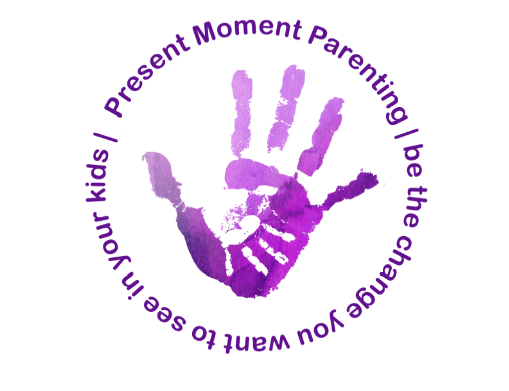
We all have what I would call a “Book of Rules” in our minds – ideas on how the world should be, how we and other people should act and behave, what is good and right and what is bad and wrong. Most of these date back to our own childhoods, to those first seven years when we were picking up from our parents, society, teachers, friends, family and the media our belief systems about ourselves and this world we inhabit.
A lot of the time these rules about life serve us – they help us to get along with the people in our worlds, to behave appropriately for our current society and to feel like we belong. However, this Book of Rules can also be a source of much stress in our lives as we try to live up to these ideals in our minds, and particularly when we expect other people to live up to them too (and they don’t).
Nowhere is this more apparent than in our ideas about parenting and children. Most parents have an extensive Book of Rules about parenting (usually picked up from their own parents, and often some crazy ideals picked up from the media) that they judge themselves, their children, and other parents by and that seriously remove them from the joy of parenting.
Now let me tell you a little secret about happiness…
A lot of the time these rules about life serve us – they help us to get along with the people in our worlds, to behave appropriately for our current society and to feel like we belong. However, this Book of Rules can also be a source of much stress in our lives as we try to live up to these ideals in our minds, and particularly when we expect other people to live up to them too (and they don’t).
Nowhere is this more apparent than in our ideas about parenting and children. Most parents have an extensive Book of Rules about parenting (usually picked up from their own parents, and often some crazy ideals picked up from the media) that they judge themselves, their children, and other parents by and that seriously remove them from the joy of parenting.
Now let me tell you a little secret about happiness…
In any given moment we have two choices: To accept the moment exactly as it is OR to reject the moment as it is and wish desperately for it to be different. Choice number one leads to happiness. Choice number two leads to suffering.
If you look clearly at your life you will see that you are only ever doing one of three things: sitting, standing or lying down. Everything else is a construct of your mind. So when we leave the simplicity of life and start entering the complex world of our minds, we enter the realm of potential suffering (where I should be sitting on a better chair in a better office or I shouldn’t be standing for so long in this queue or I wish I was lying down next to a better partner etc). When we leave the present moment and wander out in our minds (into an imagined future, a remembered past, or into our imagination where other people should be behaving other than what they are and situations should be different to the current reality), we enter this place of suffering. And our Book of Rules is the guide that we use to determine how much we suffer and then use to justify our suffering.
So what I would like to do, over the next few months, is to debunk some of the parenting myths in your Book of Rules and significantly reduce the suffering that you experience along your parenting journey.
To do this, I like to use The Work of Byron Katie. It is a lovely and simple process for questioning your Book of Rules and coming to the truth of peace and happiness in the moment.
I will pick some of the more common parenting rules that I’ve come across and subject them to some intensive questioning, and along the way you will learn how to do this process for yourself on some of your own specific rules. You’ll find that parenting can be fun and relaxed, and you can grow and learn a lot from your kids.
I trust that you will enjoy this journey. If you have any particular parenting myths that you’d like me to look at, please pop me a mail or send me a message via my Facebook page. If you’ve been sent this mail by a friend and would like to be a part of this journey, please sign up to my mailing list here.
And remember, be the change you want to see in your kids!
If you look clearly at your life you will see that you are only ever doing one of three things: sitting, standing or lying down. Everything else is a construct of your mind. So when we leave the simplicity of life and start entering the complex world of our minds, we enter the realm of potential suffering (where I should be sitting on a better chair in a better office or I shouldn’t be standing for so long in this queue or I wish I was lying down next to a better partner etc). When we leave the present moment and wander out in our minds (into an imagined future, a remembered past, or into our imagination where other people should be behaving other than what they are and situations should be different to the current reality), we enter this place of suffering. And our Book of Rules is the guide that we use to determine how much we suffer and then use to justify our suffering.
So what I would like to do, over the next few months, is to debunk some of the parenting myths in your Book of Rules and significantly reduce the suffering that you experience along your parenting journey.
To do this, I like to use The Work of Byron Katie. It is a lovely and simple process for questioning your Book of Rules and coming to the truth of peace and happiness in the moment.
I will pick some of the more common parenting rules that I’ve come across and subject them to some intensive questioning, and along the way you will learn how to do this process for yourself on some of your own specific rules. You’ll find that parenting can be fun and relaxed, and you can grow and learn a lot from your kids.
I trust that you will enjoy this journey. If you have any particular parenting myths that you’d like me to look at, please pop me a mail or send me a message via my Facebook page. If you’ve been sent this mail by a friend and would like to be a part of this journey, please sign up to my mailing list here.
And remember, be the change you want to see in your kids!







 RSS Feed
RSS Feed